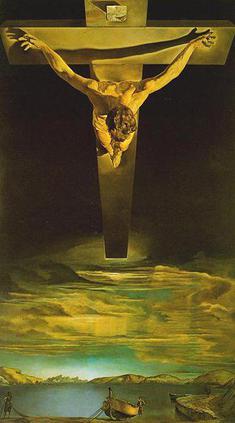Pull away the veil and what are you left with? An ordinary young woman of modest ability and little imagination. But wrap her up like this, anoint her with oil, and hey presto, what do you have? A goddess.
This Sunday we celebrate the festival of Christ the King, which asserts the monarchy of Christ over the whole universe. And on this festival, this year, we hear a very curious passage to make this point:
Two others also, who were criminals, were led away to be put to death with him. When they came to the place that is called The Skull, they crucified Jesus there with the criminals, one on his right and one on his left. [[ Then Jesus said, ‘Father, forgive them; for they do not know what they are doing.’]] And they cast lots to divide his clothing. And the people stood by, watching; but the leaders scoffed at him, saying, ‘He saved others; let him save himself if he is the Messiah of God, his chosen one!’ The soldiers also mocked him, coming up and offering him sour wine, and saying, ‘If you are the King of the Jews, save yourself!’ There was also an inscription over him, ‘This is the King of the Jews.’
One of the criminals who were hanged there kept deriding him and saying, ‘Are you not the Messiah? Save yourself and us!’ But the other rebuked him, saying, ‘Do you not fear God, since you are under the same sentence of condemnation? And we indeed have been condemned justly, for we are getting what we deserve for our deeds, but this man has done nothing wrong.’ Then he said, ‘Jesus, remember me when you come into your kingdom.’ He replied, ‘Truly I tell you, today you will be with me in Paradise.’
But as I read this passage again today and reflected on it with my colleagues from the Eastern Mission Conference, it occurred to me that Jesus does something very characteristic of a king: he grants an appeal to mercy. He, in effect, pardons the thief who is crucified next to him, and who asks very simply "Remember me when you come into your kingdom." Granting an unconditional and irrevocable pardon is a power of a king (the pardon power of our presidents is an interesting holdover from the age of monarchy). And Jesus wields that power from his throne, the cross.
I look forward to hearing this passage all week and again in worship on Sunday. Please join us!
More on this week's readings: "Jeremiah 23:2 contains other wordplays. The same Hebrew verb (p-q-d) denotes both the shepherd’s lack of care for the flock and God’s punishment of the shepherds. (It appears again in verse 4, with the meaning “be missing.”) The NRSV nicely translates the wordplay: “You have not attended to them. So I will attend to you for your evil doings” (emphasis added). As frequently happens in biblical prophetic literature, God’s punishment is tailored to fit the crime.1 In the same line, the word “evil” sounds a lot like the word “shepherd” in Hebrew (roa‘/ro‘eh). The pun emphasizes how badly Judah’s shepherds/rulers have perverted their authority." J. Blake Couey, Workingpreacher.org


 RSS Feed
RSS Feed